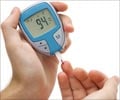
Since the 1970s, a large population based cohort study has been undertaken at the Sahlgrenska Academy, University of Gothenburg to monitor the health of men born in Gothenburg between 1915 and 1925.
Using this unique material, researchers are now able to show that permanent stress significantly increases the risk of type 2 diabetes.
Of the total sample, 6,828 men without any previous history of diabetes, coronary artery disease or stroke were analyzed. A total of 899 of these men developed diabetes during the follow up.
Stress at baseline in this study was measured using a single item question in which they were asked to grade their stress level on a six-point scale, based on factors such as irritation, anxiety and difficulties in sleeping related to conditions at work or at home.
At baseline, 15.5 percent of the men reported permanent stress related to conditions at work or home, either during the past one year or during the past five years.
Advertisement
The link between stress and diabetes has been statistically significant, even after adjusting for age, socioeconomic status, physical inactivity, BMI, systolic blood pressure and use of blood pressure-lowering medication.
Advertisement
Source-ANI















